The Vanderbilt University School of Engineering announces the appointment of senior faculty to the Department of Biomedical Engineering, and four junior faculty members representing biomedical, mechanical and computer science and computer engineering departments.
Michael R. King will join Vanderbilt as professor and chair of the Department of Biomedical Engineering. Cynthia Reinhart-King will join biomedical engineering as professor and will direct new research initiatives related to the emerging area of regenerative medicine.
The Kings are currently at Cornell University where Michael King is the Daljit S. and Elaine Sarkaria Professor of Biomedical Engineering, and Cynthia Reinhart-King is associate professor in the Department of Biomedical Engineering. Their appointments are effective Jan. 1, 2017, pending approval by the Vanderbilt University Board of Trust.
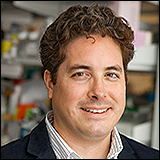
Michael King is an expert on the receptor-mediated adhesion of circulating cells, and has developed new computational and in vitro models to study the function of leukocytes, platelets, stem and circulating tumor cells under flow. He has written textbooks on the subjects of statistical methods and microchannel flows, and he is currently the editor-in-chief of Cellular and Molecular Bioengineering.
King is a fellow of the American Institute for Medical and Biological Engineering and of the Biomedical Engineering Society. He has received numerous awards, including a NSF Faculty Early Career Development Award. He received a bachelor of science degree in chemical engineering from the University of Rochester and a doctoral degree in chemical engineering from the University of Notre Dame.
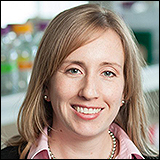
Cynthia Reinhart-King investigates tissue formation and tissue disruption during diseases such as atherosclerosis and cancer. She focuses on how physical and chemical cues within the extracellular environment drive fundamental cellular processes including cell-matrix adhesion, cell-cell adhesion and cell migration.
Reinhart-King is a fellow of the American Institute for Medical and Biological Engineering, a recipient of a NSF Faculty Early Career Development Award and of the Rita Schaffer Award from BMES. She obtained undergraduate degrees in chemical engineering and biology at MIT and a Ph.D. in bioengineering at the University of Pennsylvania. Reinhart-King’s lab has received funding from the American Heart Association, the National Institutes of Health, the National Science Foundation and the American Federation for Aging Research. She currently serves as a member of the national BMES Board of Directors, and serves as the program chair of the 2016 BMES annual meeting.
Four additional professors have joined the school as full-time faculty members. They are Abhishek Dubey, Kelsey Hatzell, Taylor Johnson and Kenny Tao.
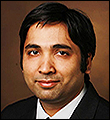
Assistant professor of computer science and computer engineering Abhishek Dubey studies failure detection and diagnostic techniques in cyber physical systems using a combination of model-driven and data-driven methods. He is a researcher at the Institute for Software Integrated System at Vanderbilt where he leads the team that is working on the next generation of transit applications and decision support tools for improving public engagement and increasing overall efficiency. He is a senior member of IEEE and has published more than 70 articles in peer reviewed venues. He received his Ph.D. in electrical engineering from Vanderbilt and B.Tech in electrical engineering from Indian Institute of Technology BHU, India.
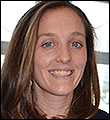
Assistant professor of mechanical engineering Kelsey Hatzell’s research involves understanding inks and interfaces. She investigates how materials interact, aggregate, and orient in a solution. From an applied sense, she aims to design multi-component inks for applications related to energy storage, energy conversion, sensing and water desalination applications. Currently, Hatzell is an ITRI-Rosenfeld postdoctoral fellow in the energy technology area at the Berkeley Lab. Her appointment is effective Jan. 1, 2017. Hatzell earned a B.S. in engineering and a B.A in economics from Swarthmore College, a master’s degree in mechanical engineering from Penn State, and a Ph.D. in materials science and engineering from Drexel University.
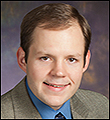
Assistant professor of computer science and computer engineering Taylor Johnson’s research focus is developing formal verification techniques and software tools for cyber-physical systems, and cyber-physical systems reliability in power and energy systems, aerospace and robotics. Johnson has worked at Schlumberger on embedded control systems, and he joins the school from the University of Texas at Arlington where he was an assistant professor of computer science and engineering. Johnson earned a B.S. degree in electrical engineering from Rice University, a master’s degree and a Ph.D. in electrical and computer engineering from the University of Illinois at Urbana-Champaign.
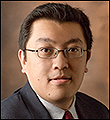
Assistant professor of biomedical engineering Yuankai Kenny Tao’s research includes the development of optical imaging methods related to macular degeneration, glaucoma, diabetic retinopathy, and cancer margin detection. Prior to joining the school, Tao was an assistant professor in the Department of Ophthalmic Research at Cleveland Clinic and director of the Diagnostic Imaging and Biophotonics Laboratory at Cole Eye Institute. He received bachelor degrees in electrical and computer engineering and biomedical engineering, a master’s degree and Ph.D. in biomedical engineering from Duke University. Prior to joining the Cleveland Clinic, he was a postdoctoral fellow in the Research Laboratory of Electronics at the Massachusetts Institute of Technology.
Contact:
Brenda Ellis, (615) 343-6314
Brenda.Ellis@Vanderbilt.edu
Twitter @VUEngineering